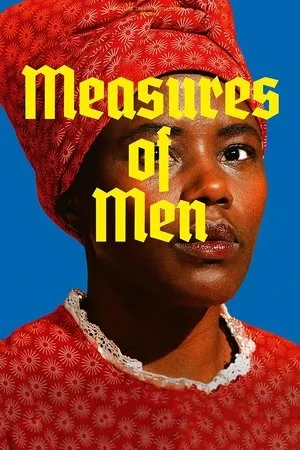In the heart of Berlin, as the 19th century drew to a close, a young and ambitious PhD student named Alexander Hoffmann found himself at the intersection of science, colonialism, and human connection. “Measures of Men” unfolds against the backdrop of a city brimming with intellectual curiosity and imperial ambition. Alexander, a student of Ethnology, is driven by a desire to make his mark in the academic world. His path takes an unexpected turn when a delegation of the Herero and Nama tribes arrives in Berlin to participate in a ‘Colonial Exhibition.’ This event, designed to showcase the reach and power of the German empire, becomes the catalyst for a series of events that challenge Alexander’s perceptions and ethics. Among the delegation is Kezia Kambazembi, a young woman who serves as their translator. Kezia is intelligent, articulate, and deeply connected to her cultural heritage. Alexander becomes fixated on Kezia, viewing her as an ideal subject for his research. He sees her as a representative of a culture that he seeks to understand and categorize through the lens of his academic discipline. As Alexander delves deeper into his studies, he begins to develop a personal relationship with Kezia. He is drawn to her intelligence, her strength, and her unwavering commitment to her people. However, his growing feelings for Kezia are complicated by his academic ambitions. He struggles to reconcile his personal feelings with his desire to maintain a detached, objective perspective as a researcher. The film explores the ethical dilemmas faced by researchers who study marginalized communities. It raises questions about the power dynamics inherent in such relationships and the potential for exploitation. Alexander’s pursuit of knowledge is intertwined with the legacy of colonialism, which sought to classify and control people from different cultures. As Alexander spends more time with Kezia, he begins to question the assumptions and biases that underpin his research. He realizes that his understanding of the Herero and Nama cultures is limited by his own cultural background and his reliance on Western scientific methods. Kezia challenges Alexander to see beyond the surface and to recognize the humanity and complexity of her people. She shares stories of their history, their traditions, and their struggles against colonial oppression. Through his interactions with Kezia, Alexander begins to develop a deeper understanding of the impact of colonialism on the Herero and Nama communities. He witnesses firsthand the discrimination and prejudice they face in Berlin, and he becomes increasingly aware of the injustices of the colonial system. The film delves into themes of cultural identity, the clash between tradition and modernity, and the search for meaning in a rapidly changing world. It examines the ways in which individuals are shaped by their cultural backgrounds and the challenges they face when they encounter different cultures. “Measures of Men” is a thought-provoking film that invites viewers to reflect on the complexities of human relationships, the legacy of colonialism, and the ethical responsibilities of researchers. It is a story about the power of empathy, the importance of cultural understanding, and the need to challenge our own biases and assumptions.

Measures of Men (2023)
Set in Berlin at the close of the 19th century, "Measures of Men" follows Alexander Hoffmann, an ambitious Ethnology PhD student. During a 'Colonial Exhibition,' a delegation from the Herero and Nama tribes arrives, sparking Alexander's interest. He becomes particularly fascinated with Kezia Kambazembi, the delegation's young female translator, viewing her as a subject for his academic studies, setting the stage for a complex exploration of colonialism, science, and human relationships.











